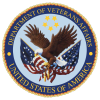The Veterans Health Administration (VHA) purchases community healthcare services by contracting with third-party administrators (TPAs), which in turn contract with community providers. When prescribing drugs, community providers submit prescription requests to be filled at VA pharmacies and must consider VA’s approved formulary drugs before others, which require special authorization (usually a justification for its use). The VA Office of Inspector General (OIG) conducted this audit to determine if VHA’s oversight of TPAs ensured that community providers prescribed special-authorization drugs as required.The OIG determined that community providers rarely submitted initial prescriptions for special-authorization drugs with required justifications, partly because the electronic prescription system lacked the means to include justifications. VA pharmacies reported that ongoing staffing challenges and increased community care prescriptions required additional processing time and caused a backlog. However, VA pharmacies sometimes did not record receipt dates for these prescriptions accurately, which made it difficult for VHA to track delayed processing. The OIG found that community care prescription processing often exceeded VHA’s four-day standard, with an average of about 11 days for processing.These issues occurred partly because of ineffective oversight at multiple levels. VHA did not hold TPAs accountable for making certain that community providers followed formulary procedures for special-authorization drugs. Although TPAs developed formulary training, less than 2 percent of community providers completed it. The OIG questioned about $200.2 million in prescription costs that lacked justification from community providers.The OIG made seven recommendations to the under secretary for health to improve community providers’ compliance when prescribing special-authorization drugs, such as enhancing prescription system capabilities, addressing training requirements, improving VA pharmacies’ documentation of justifications, and clarifying requirements for VA pharmacies to report community providers that are not compliant.
Report File
Date Issued
Submitting OIG
Department of Veterans Affairs OIG
Other Participating OIGs
Department of Veterans Affairs OIG
Agencies Reviewed/Investigated
Department of Veterans Affairs
Components
Veterans Health Administration
Report Number
23-01583-183
Report Description
Report Type
Audit
Agency Wide
Yes
Number of Recommendations
0
Questioned Costs
$200,232,348
Funds for Better Use
$0


